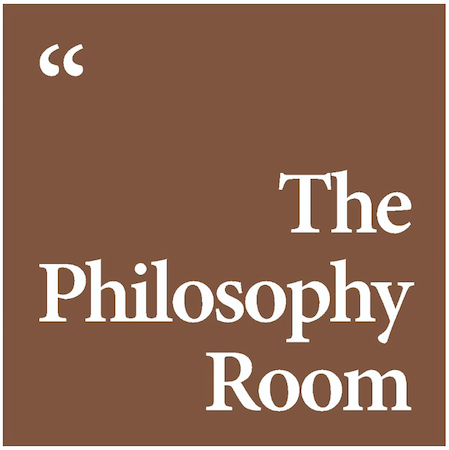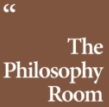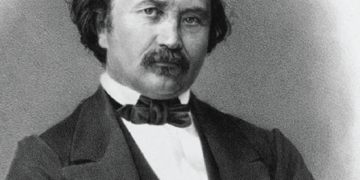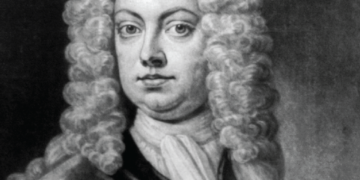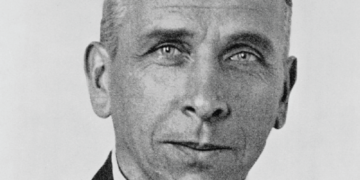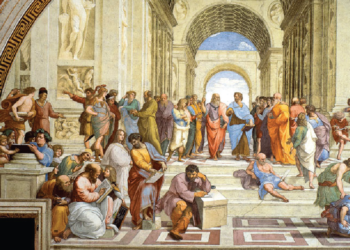Frege
1) His Biography and Main Works:
Modern mathematical logic is credited to German mathematician and philosopher Gottlob Frege (1848–1925). Despite receiving little attention when he was alive, his work has had a significant impact on the philosophy of language and logic.
On November 8, 1848, Gottlob Frege was born in Wismar. He started his university studies in Jena in 1869 but transferred to Göttingen after two years. In 1873, he graduated after having studied philosophy, natural sciences, and mathematics. After that, he was a mathematics professor at Jena. In 1896, he was appointed a professor, and he retired in 1918. Frege and Margarete Lieseberg were wed, and they had a son through adoption. On July 26, 1925, Frege passed away in Bad Kleinen.
In his first major work, Begriffsschrift (1879), Frege introduced the idea of a formal system of mathematical logic and provided the first illustration of such a system in the form of a propositional and predicate calculus. He created the concept of quantifiers and introduced the mathematical concepts of function and variable into logic. In addition, he was the first author on axiomatic theory to explain the difference between an axiom and an inference rule.
Frege was persuaded by further developments in this book that the fundamental concepts of mathematics (but not geometry) could be expressed only in logical statements. In The Foundations of Arithmetic (1884), a non-symbolic treatise that also included a superb and devastating tirade against all prior attempts at the subject, he first outlined his new programme.
His Basic Laws of Arithmetic were to be the work’s crowning achievement. The first volume of this work was published in 1893, but as Frege prepared to publish the second volume in 1903, Bertrand Russell spotted a conflict in the way Frege used the concept of a “class”, undermining the work’s justifications. Frege hurriedly produced an appendix that attempted to fix the flaw (this attempt was later shown to be flawed), but after that he appeared to lose interest in the enormous project. He later viewed the entire endeavour as a mistake and reverted to the Kantian concept of mathematical judgments as synthetic a priori. This was two decades later.
Frege made significant contributions to logic philosophy as well. In response to the age-old issue, “What does it mean for a proposition to have meaning?”, he offered several differences that modern philosophers are now using to their advantage. Frege rejected epistemology as the foundation of philosophy and reinstated the traditional notion that philosophical logic should occupy this position, which was popular before René Descartes.
2) Main Themes in his Writings:
Mathematics:
The fundamental goal of Frege’s work was to support the logicist claim that arithmetic may be reduced to logic. In his debut book, Begriffsschrift, he attempted to revolutionise logical theoryby developing the first system of contemporary predicate logic. He provided a loose explanation of his logicist effort in The Foundations of Arithmetic (Die Grundlagen der Arithmetik, 1884), demonstrating how the natural numbers may be described as extensions of (logically definable) ideas, or essentially what we would today call sets or classes.
He then set out to formally prove using his logical framework that math could be reduced to logic in Basic Laws of Arithmetic (Grundgesetze der Arithmetik, Vol. 1 [1893], Vol. 2 [1903]). In three of his most famous pieces, “Function and Concept” (1891), “On Sense and Reference” (1892), and “On Concept and Object” (1892), he clarified his basic philosophical principles that he had thought through and refined between the Foundations and Basic Laws. Russell wrote to Frege in 1902, while the second volume of Basic Laws was being published, to notify him of a contradiction he had found in Frege’s framework. This contradiction is now known as Russell’s dilemma. In a hastily prepared supplement, Frege tried to answer the dilemma, but he soon realised that the effort had failed and gave up on his logicist endeavour.
Although he never finished a textbook on logic, he continued to work on his philosophical and logical theories, which was eventually published posthumously. In the final years of his life, he produced three articles in a collection titled “Logical Investigations”, the first of which, “Thought”, has likewise received a great deal of attention and citation.
Philosophy:
Frege, one of the pioneers of analytical philosophy, is credited with inspiring the linguistic shift in philosophy through his work on logic and language. His contributions to the philosophy of language include Function and argument analysis of the proposition, Begriff und Gegenstand (distinction between concept and object), Principle of compositionality, Context principle, and Sinn und Bedeutung (distinction between sense and reference), which is sometimes said to involve a mediated reference theory.
The psychologistic appeal to mental explanations of the substance of assessment of sentence meaning was criticised by Frege as a math philosopher. He didn’t design his logic with the intention of providing answers to more general questions about meaning; rather, he did so in order to investigate the underlying principles of mathematics. He set out to address issues like “What is a number?” and “What objects do number-words (‘one,’ ‘two’, etc.) refer to?” however, in exploring these issues, he ultimately discovered himself analysing and defining what meaning is. As a result, he arrived at some conclusions that proved to be extremely important for the development of analytic philosophy and the philosophy of language.
Sense and reference:
The influential distinction between sense (“Sinn”) and reference was first made by Frege in his 1892 essay “On Sense and Reference” (“Über Sinn und Bedeutung”) (“Bedeutung” has also been translated as “meaning”, or “denotation”). Frege established the idea that expressions had two distinct features of significance: their sense and their reference, in contrast to previous explanations of meaning that took expressions to have just one feature (reference).
Applied to proper names, reference (or “Bedeutung”) is when a given term, such as “Tom”, merely refers to the thing with that name (the person named Tom). Frege believed thatpropositions and their truth-value had a referential relationship (in other words, a statement “refers” to the truth-value it takes). On the other hand, the sense (or “Sinn”) connected to a whole sentence is the idea it conveys. There can be different ways to represent the same referent, with the sense of an expression being the “form of presentation” of the thing being referred to.
The distinction is best explained by the following example: In their everyday usage, the names “Charles Philip Arthur George Mountbatten-Windsor”, which is an unanalysable whole from a logical standpoint, and “the Prince of Wales,” which contains the significant parts “the prince of” and “Wales” have the same reference, namely the person better known by his given name, Prince Charles. But the sense of the term “Wales” is a part of the sense of the later expression, but no part of the sense of the “complete name” of Prince Charles. These distinctions were questioned by Bertrand Russell, especially in his paper “On Denoting”; the discussion has persisted until the present, driven mainly by Saul Kripke’s famous lectures “Naming and Necessity”.
3) His Legacy:
Russell, Rudolf Carnap, and Wittgenstein were all influenced by Frege. However, it wasn’t until after his passing that the significance of his work became widely acknowledged, and it wasn’t until after World War II that his writings started to be translated into English (the only exception being the opening thirty pages of Basic Laws, which had appeared in 1915–1917). In the modern day, Frege’s place in philosophical history is unquestionable, and interest in his work is still exploding, not just in Anglo-American analytic philosophy but also globally.
